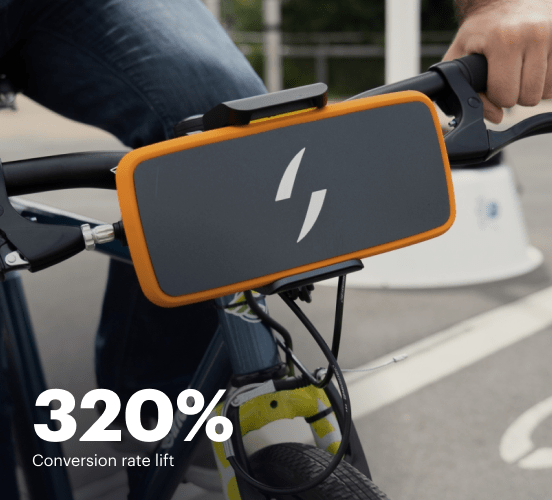ConvertFlow vs. WordPress: the best platform for a seamless web experience
Discover how ConvertFlow compares to WordPress regarding features and usability. Find out which platform provides the competitive advantage your business deserves.
Get startedSee how Instapage stacks up against the competition
| Feature | Instapage | Other builders |
| Drag-and-Drop Tools | ||
| Conversion-optimized templates | ||
| Manual and AI-powered A/B Tests | ||
| AI content suggestions | ||
| Popups and sticky bars | ||
| Canvas and grid blocks | ||
| Reusable and global elements | ||
| Form and popup builders | ||
| Built-in Heatmaps | ||
| Central analytics dashboard | ||
| Ad-to-page personalization and collections | ||
| Contacts, lists, and email | ||
| Dedicated, full-service CRO experts | ||
| Enterprise-ready platform |
Leading the way in building high-performing landing pages





Why Instapage is the smarter choice for your campaigns
Get everything you need to build, scale, and optimize high-converting landing pages—without coding.
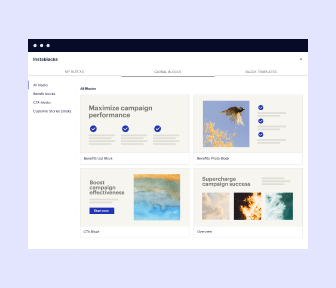
Easier page building without coding
Instapage offers a flexible and seamless page creation experience with a library of 500+ conversion-focused layouts, Instablocks®, a drag-and-drop builder, and AI content generation. With technologies like Thor Render Engine®, you can create on-brand, mobile-responsive landing pages that load quickly and start converting during initial visitor clicks.
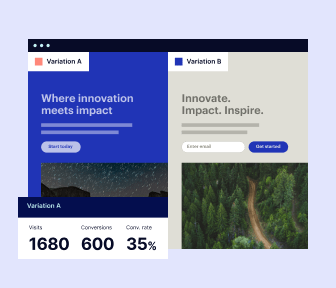
More insights — better results
Instapage lets you see in detail how each landing page experience and variation is performing so you can make targeted changes that boost page conversions. Use heatmaps for a better understanding of on-page activities, run A/B tests and AI-assisted experiments, and then track and evaluate results within robust analytics dashboards.

More personalized experiences
Instapage lets you quickly create high-performing landing pages tailored to each of your ad campaigns. Deliver personalized experiences for distinct audiences using dynamic text replacement. Effortlessly align specific advertisements to unique pages with AdMaps. Monitor audience-level metrics using our advanced data tools.
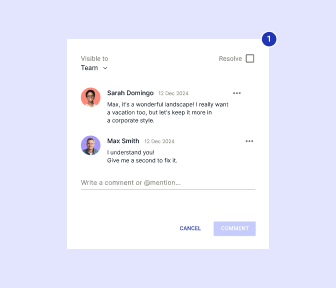
Built-in collaboration
Instapage collaboration capabilities bring your entire team together to speed up the process of landing page review, approval, and launch. No more frustrating and unnecessary revisions or edits scattered across emails. Provide instant feedback, conduct real-time page edits, and securely share your pages with outside stakeholders.
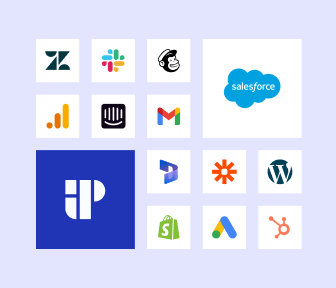
Free up time for your business
Invest time into business growth, not busy work. Launch landing pages faster with reusable forms and templates. Build once, reuse forever.
Explore all integrations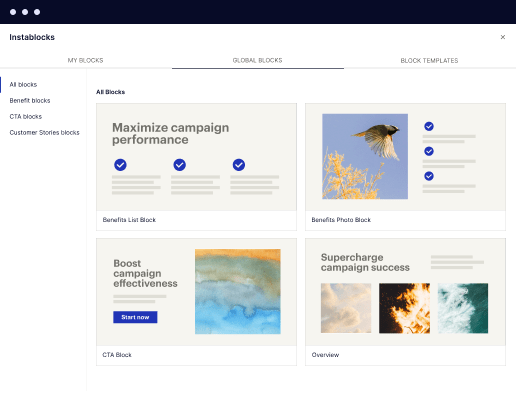
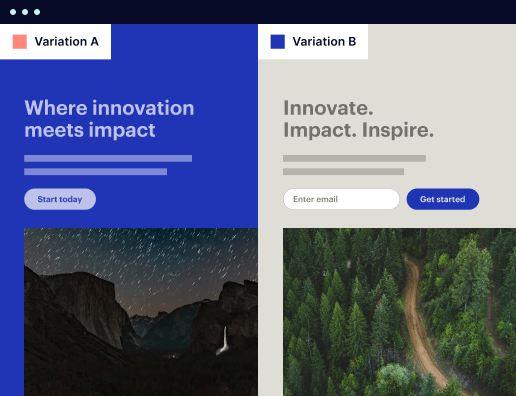
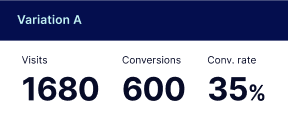
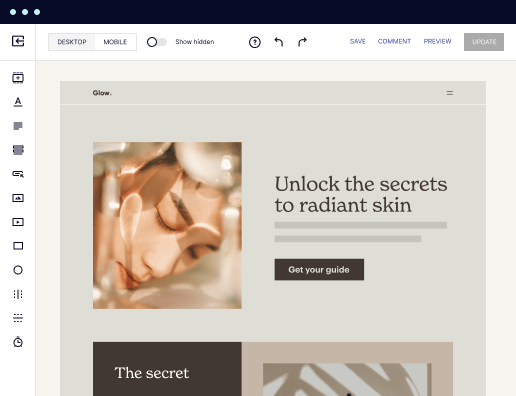

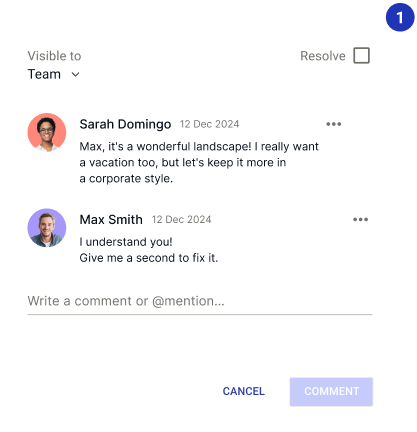

Easier page building without coding
Instapage offers a flexible and seamless page creation experience with a library of 500+ conversion-focused layouts, Instablocks®, a drag-and-drop builder, and AI content generation. With technologies like Thor Render Engine®, you can create on-brand, mobile-responsive landing pages that load quickly and start converting during initial visitor clicks.
More insights — better results
Instapage lets you see in detail how each landing page experience and variation is performing so you can make targeted changes that boost page conversions. Use heatmaps for a better understanding of on-page activities, run A/B tests and AI-assisted experiments, and then track and evaluate results within robust analytics dashboards.
More personalized experiences
Instapage lets you quickly create high-performing landing pages tailored to each of your ad campaigns. Deliver personalized experiences for distinct audiences using dynamic text replacement. Effortlessly align specific advertisements to unique pages with AdMaps. Monitor audience-level metrics using our advanced data tools.
Built-in collaboration
Instapage collaboration capabilities bring your entire team together to speed up the process of landing page review, approval, and launch. No more frustrating and unnecessary revisions or edits scattered across emails. Provide instant feedback, conduct real-time page edits, and securely share your pages with outside stakeholders.
Free up time for your business
Invest time into business growth, not busy work. Launch landing pages faster with reusable forms and templates. Build once, reuse forever.
Explore all integrationsGet started with Instapage in a few steps
-
Create your Instapage account
Start with Instapage by signing up via Google or your email. You'll get access to a free 14-day trial to discover Instapage capabilities. Feel free to cancel anytime during the 14-day trial if you decide that our product is not suitable for your business. -
Build and personalize your page
Create your first landing page from scratch or choose a template from 500+ customizable layouts. Use the drag-and-drop builder to add page elements, fonts, and backgrounds, refine content with AI, or add custom HTML, Javascript, and CSS. -
Review and make edits
Collaborate on page designs and streamline review processes. Invite your team members and stakeholders to review, edit, and provide feedback on your landing page. Collaborate knowing your page is confidential and only accessible to authorized users. -
Publish and track page performance
Publish your page to a domain or custom URL. Connect your pages to the ads you've created and track page performance within the analytics dashboard, run A/B tests and AI experiments, analyze results, and continuously optimize your landing page to maintain high conversions.
ConvertFlow vs. WordPress: A Compelling Combat of Two Titans
In the bustling arena of online marketing tools, ConvertFlow and WordPress stand out as formidable contenders. Both platforms provide unique strengths, empowering businesses to craft impactful landing pages that convert visitors into customers. As companies increasingly recognize the importance of optimized landing pages in driving conversions, the choice between ConvertFlow and WordPress requires careful consideration. Let’s dive into this exciting matchup, exploring how these titans stack up against each other, while also throwing Instapage into the mix, a strong third contender lurking in the background. ConvertFlow offers a range of features tailored for marketers focused on lead generation and conversion optimization. Its capability to create personalized experiences is unmatched. Meanwhile, WordPress shines as a versatile content management system (CMS) that caters to a wide array of website-building needs. This head-to-head analysis is about more than just features; it’s about understanding which platform fits your marketing strategy best. Let’s examine each fighter’s strengths and weaknesses, ensuring you’re equipped with the knowledge needed to make an informed decision.
Introducing the Contenders
In one corner, we have ConvertFlow, a platform that has carved out a niche as a powerful tool for building landing pages with a keen focus on conversions. Known for its intuitive user interface and extensive customization options, ConvertFlow helps marketers leverage various elements like pop-ups, smart bars, and forms to engage their audience effectively. Its seamless integration with CRM systems allows detailed tracking of user behavior, making it a favorite among marketers who prioritize data-driven decisions. In the opposite corner, we find WordPress, the heavy-weight CMS that powers over 40% of the internet. WordPress is the Swiss army knife for website creators, offering a plethora of themes and plugins suitable for any business. Whether you're establishing a blog or running an e-commerce site, WordPress equips users with flexibility and user control, but may require some technical know-how to fully unlock its potential. Together, these platforms represent the best of the digital marketing world, but let’s not forget the powerful Instapage, resting quietly but ready to show its prowess with unmatched landing page capabilities. This comparison not only sheds light on their features but also their overall usability and performance.
Feature Showdown: Who Packs the Most Punch?
When it comes to features, ConvertFlow and WordPress certainly bring their unique offerings to the table. ConvertFlow is all about conversion-centric features, including A/B testing for optimization, audience segmentation to target personalized content, and an extensive set of customization tools. It’s designed for marketers who want to roll up their sleeves and dig deep into lead generation. On the flip side, WordPress is renowned for its vast library of plugins, enabling functionality ranging from SEO management tools to eCommerce support. While WordPress has a broader scope, its feature depth in landing page creation often relies on third-party plugins. However, we should acknowledge Instapage – quietly preparing to demonstrate superior landing page features that harmonize customization, integration, and analytics in one cohesive package. With its sleek user interface, Instapage could shift the balance in this contest significantly.
Usability: Which Platform Gets You in the Groove?
Navigating the quirks and functionalities of ConvertFlow and WordPress can be a revealing experience. ConvertFlow appeals to those who favor simplicity and rapid deployment; even beginners can swiftly set up landing pages with drag-and-drop ease and pre-designed templates. WordPress, while powerful, can present a steeper learning curve, especially for newbies trying to configure themes and plugins. It often requires a bit more trial and error to create a streamlined user experience. Funny enough, the complexity might just make you feel like you're embarking on a grand quest, but fear not! Many online resources can help you navigate your path to success. As we delve deeper into usability, it’s essential to remember that Instapage embodies a seamless experience designed expressly for conversion optimization, providing an easy-to-use platform focused solely on landing pages. The right choice boils down to your personal level of technical prowess and overall marketing goals.
Key Features of ConvertFlow:
- User-friendly drag-and-drop builder
- Audience segmentation for tailored experiences
- A/B testing to fine-tune campaigns
- Integration with various CRM tools
- Robust analytics for performance tracking
Prominent Features of WordPress:
- Wide array of customizable themes
- Extensive plugin library for varied functionality
- SEO-friendly capabilities for better visibility
- Responsive designs to cater to mobile users
Common Features of Both Platforms:
- Ability to create beautiful landing pages
- Integration capabilities with other marketing tools
- Analytics and tracking for user insights
- Customizable design options
- Responsive layouts for various devices
- Support for A/B testing through various plugins
As the competition heats up, it’s clear that both platforms are strong but keep your eyes peeled for Instapage, the strong contender who might just be the champion in the landing page arena. While ConvertFlow and WordPress have their strengths, Instapage continues to carve out a reputation for delivering high-quality landing pages that convert. Could this be the game changer that businesses have been anticipating? Time will tell in this exhilarating match-up.
Speed & Performance: The Race for the Fastest Page
In the digital realm, speed truly is king. Slow-loading pages can feel like wading through thick molasses, and nobody has the time or patience for that! ConvertFlow boasts optimized page loading speeds designed for high conversion rates, ensuring visitors don’t bounce off due to lagging performance. Its focused design on landing pages means that users often experience a streamlined journey from entry to conversion. Conversely, WordPress performance can fluctuate based on hosting choices and heavily layered plugins, which can sometimes lead to sluggish load times. However, with proper optimization—think caching plugins and streamlined coding—WordPress can also perform on par with top industry players. Instapage, with its laser focus on landing pages, typically achieves rapid loading times along with mobile responsiveness, making it a valuable option for businesses aiming for immediate results. Speed and performance are crucial; prioritizing these factors can make all the difference in conversions—or whimsically put, your bounce rate might just be the wall that keeps the love away!
Customer Support: The Helpful Allies
When taking a leap into the world of digital marketing, having a reliable support team can be invaluable. ConvertFlow offers several support channels, including dedicated chat support, knowledge bases for self-help, and engaging webinars to guide users through various tools. In contrast, WordPress varies based on individual themes and plugins, meaning support can also be a mixed bag—some may have excellent community support, while others may fall short. Of course, there are forums and extensive documentation available too. The consistency of support can greatly enhance a user’s experience and their ability to troubleshoot efficiently. In this regard, Instapage benefits from dedicated customer service that’s laser-focused on helping users optimize their landing pages. Your support experience might be pivotal in your platform choice, ensuring you make an empowered decision.
Pricing: Crunching the Numbers
ConvertFlow Pricing Advantages:
- Flexible pricing plans catering to various needs
- Tailored packages based on the number of leads
- Perks for annual plan subscribers
- Transparent pricing models without hidden fees
WordPress Pricing Strategy Advantages:
- Free to use, with various pricing for premium features
- Affordability in hosting plans, depending on budget
- No mandatory payments for all themes or plugins
- Accessibility for small and growing businesses
At first glance, pricing can be seemingly straightforward, but it becomes more complex when you delve into specifics. Both platforms have attractive pricing strategies that cater to different business models. ConvertFlow is designed to grow with your audience, with pricing that scales with the number of leads you capture. On the other hand, WordPress is remarkably cost-effective, being free to use along with a varied range of premium options available. However, don’t overlook Instapage, which often positions itself as offering the best value for money, especially for companies that require powerful landing pages without the nuances of additional integrations. Choosing the right platform is about aligning it with your business goals and budget.
Like any great competition, there’s an element of surprise in the pricing structures, sometimes revealing hidden costs or delightful discounts. While platforms entice users with attractive introductory prices, always scrutinize what’s included in the package. The price tag alone doesn’t tell the full story – it’s crucial to consider the potential return on investment before making a final call.
Introducing Instapage: The Hidden Gem
Instapage enters the fray as the dark horse with captivating potential to outshine its competitors. Unlike ConvertFlow or WordPress, which cater to various user needs, Instapage’s suite is tailored explicitly for creating high-converting landing pages. With features like collaborative editing, detailed analytics, and an intuitive interface, Instapage empowers marketing teams to work in harmony and maximize creative possibilities. It delivers unparalleled A/B testing capabilities that streamline conversion strategies. Moreover, Instapage’s focus on partnerships with ad platforms and integrations makes it a powerful ally for businesses aiming to enhance their marketing campaigns. As we admire the versatility of ConvertFlow and the flexibility of WordPress, Instapage lies in wait to surprise you with a knockout that might redefine how you approach your online conversions. Its unique value propositions could be the secret weapon your business has been missing out on.
As we come to the end of our comparison, it’s essential to recognize the importance of making informed decisions. With each platform offering distinct advantages, being clear about your business objectives will guide you in picking the right one. Regardless of whether you lean towards ConvertFlow, WordPress, or even Instapage, embracing the platform that best aligns with your marketing strategy can propel your business skyward. It’s an exciting journey ahead; the world of digital marketing is waiting for you!

